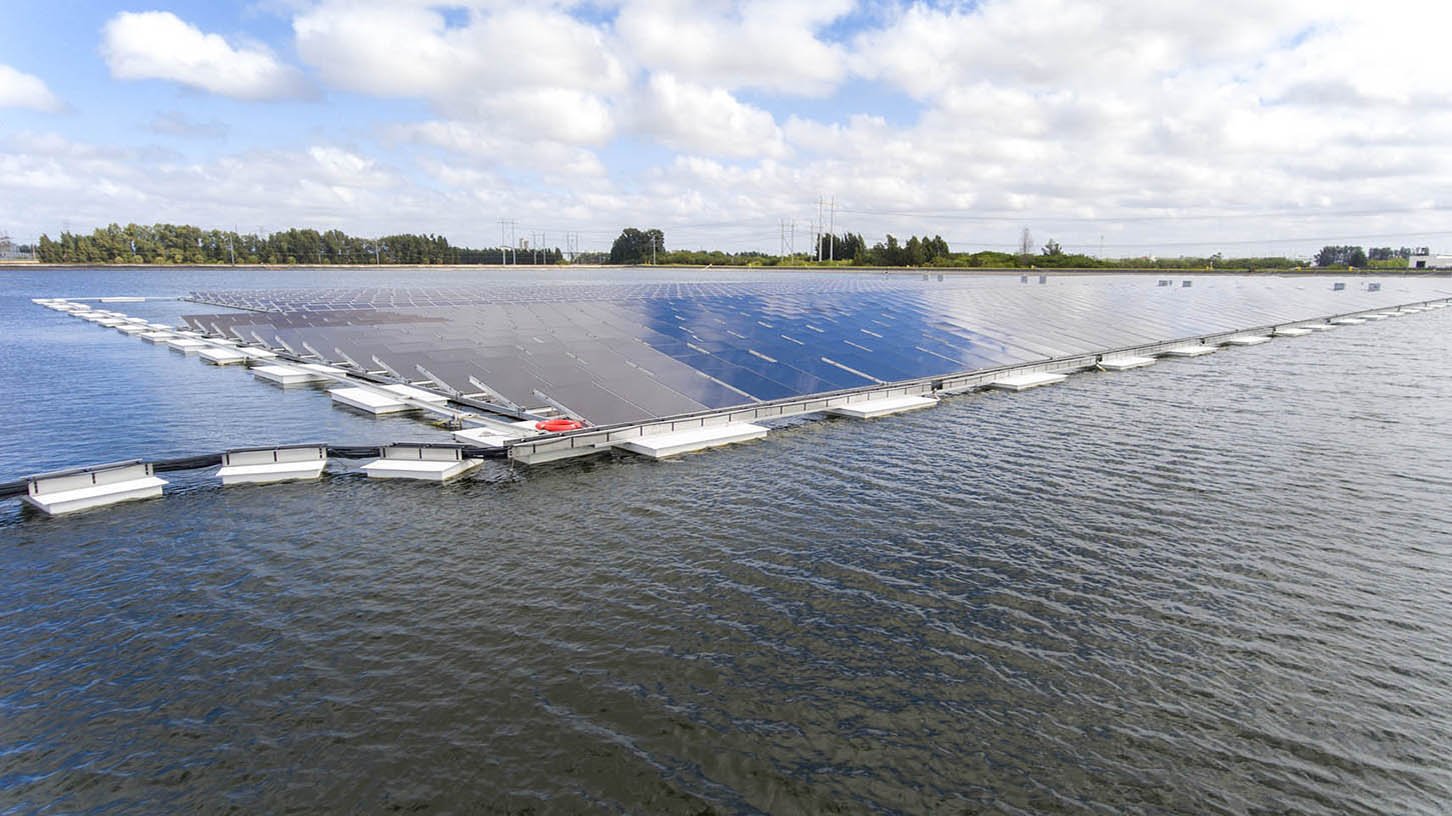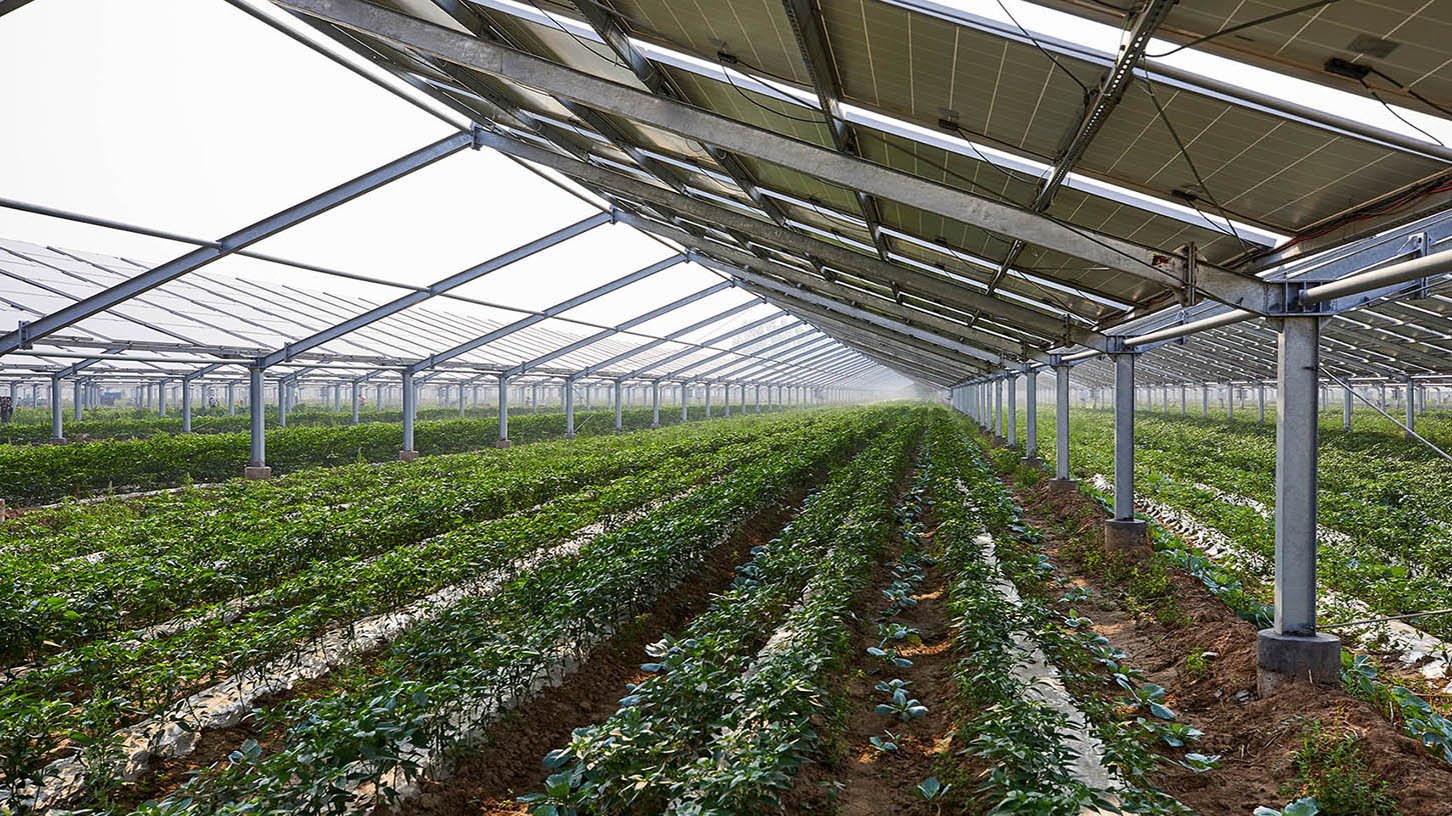Solar energy is sustainable energy. And where better to test new ideas than the Sunshine State? That's why our research and development teams are busy testing solar energy solutions – carefully recording data, analyzing the benefits, and seeking community partners. We hope these forward-thinking innovations will play a part in achieving our vision of a net-zero carbon future. And then there's the savings! Our investments in solar energy save fuel costs for our customers and help reduce the impact of natural gas prices.
Floating Solar

Our floating solar site in Apollo Beach is the largest in Florida.
In August of 2021, we began to install our first solar arrays atop water, in a retention pond near our Big Bend power station in Apollo Beach. It's there that 3,452 solar panels, clipped to floats and anchored at the shoreline, go sunbathing. The site is the largest floating solar array in Florida and the first of its kind in the Tampa Bay area.
There are two types of floating panels being tested. One type soaks up the sun from just one side and is what's used for most of our land-based solar arrays. The other type is a double-sided panel that can harness the sun's rays from both sides.
When the aquatic site is complete, we'll be able to collect data to learn how much energy is being produced, how effective it is compared to other solar sites, how the "standard" solar works in comparison to the double-sided solar and determine if the water-based panels stay cooler and thereby more efficient.
Armed with the data and research, we hope to partner with water treatment facilities or other entities that may have otherwise unusable bodies of water.
Farming Solar

We’re researching agrivoltaics – the combining of solar panels and agriculture.
Not far from our floating solar site, another innovative idea is taking root – our first venture into what's known as agrivoltaics. Simply put, agrivoltaics means the dual operation of solar panels and agriculture on the same piece of land.
After meeting with local farmers to understand their needs, we're installing 2,688 double-sided panels with enough room to grow and harvest crops between (or under) the rows of solar panels. Once complete, we hope to partner with farmers to test our site, and eventually expand into partnerships with large farming operations.
In addition, we'll be able to compare how the double-sided panels perform on land and on water.
Neighborhood Microgrid
We're piloting ground-breaking solar technology called BlockEnergy in a new community in southern Hillsborough County. The goal of the four-year pilot is to carefully assess how this new energy approach could work for even more customers in our service area.
The active adult community of Medley at Southshore Bay in Wimauma is the first in the country to pilot the BlockEnergy system in a residential setting. The technology equips homeowners to generate and store solar energy locally, so the neighborhood is powered by its own microgrid.
Learn more Microgrid Pilot Program.

